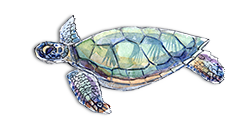What can you do?
Our oceans are massive, they cover about 70% of the earth’s surface. Over 80% of the global
carbon cycle is circulated through the ocean. The ocean absorbs over 90% of excess heat from
greenhouse gas emissions over the past 50 years. Our planet can sustain life because of one
universally unique feature: the ocean. It produces half the oxygen we breathe, shapes our
weather and climates, provides food for all people and it has to be one of the places that foster
inspiration for anyone who lays eyes upon the vastness of the sea. But our marine ecosystems
are under attack and not only that but they are woefully underexplored and poorly understood.
Climate change is making oceans hotter, promoting acidification, and making it harder for
marine life to breathe by reducing dissolved oxygen levels. The ocean is home to millions of
marine species, some of who we have yet to even discover yet, this sea contributes to the
biodiversity of our planet. How are our actions impacting these lives?
We can reduce our own carbon footprint and help decelerate climate change by making smart
choices about what we eat and how we travel.
Climate change has been called the greatest challenge of our time. We need to make a change
and help our earth, our home, to heal.






